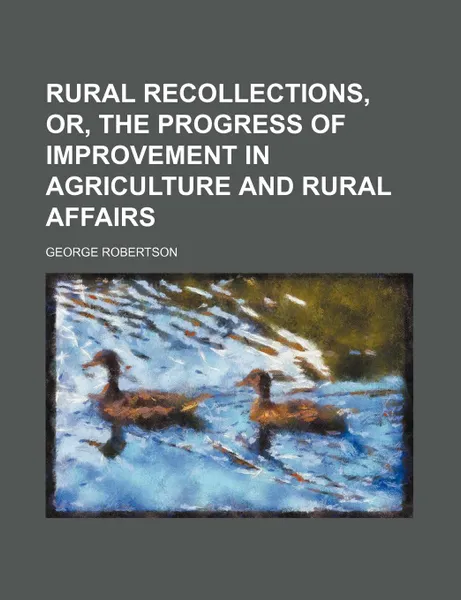Rural Recollections, Or, the Progress of Improvement in Agriculture and Rural Affairs 12+
Автор: George Robertson
148 страниц
Категория: Учебная литература
ISBN: 9781235663659
Язык: Английский
📙 This historic book may have numerous typos and missing text. Purchasers can download a free scanned copy of the original book (without typos) from the publisher. Not indexed. Not illustrated. 1829. Excerpt: ... that, notwithstanding of the great increase in the population, in the course of the last sixty or seventyyears, the amount of all sorts of provisions of home growth, now brought to market, affords a much more ample supply of bread-corn and other vegetables than ever. Thus, the three Lothians, which, in the year 1755, comprehended a population of J 36,950, were then meanly enough provided in the plainest of food, the produce being chiefly oats, pease and barley, but not much wheat, with little butcher-meat, and but a very scanty supply of vegetables, other than green-kale and cabbages. Now this same territory, in 1821, at the distance of sixtysix years, has increased to 249,234 people, all supplied in the greatest abundance with the best of wheat-bread in addition to the meal of oats--(that of pease and of barley being nearly out of use)--and with an overflowing market of the best-fed beef, mutton, and all other species of meat, (ten times at least more plentiful than in the first period,) together with a more copious supply of almost every field and garden vegetable known in Britain; and all this with very little importation of foreign grain, and less at any rate than before, in proportion to the population: and yet, a class of philosophers, under the imposing name of ...
Мнения
